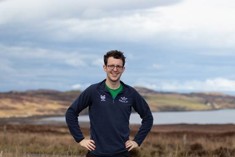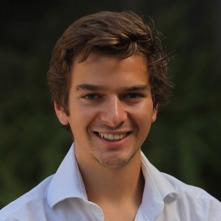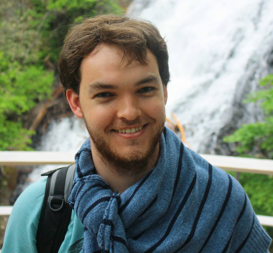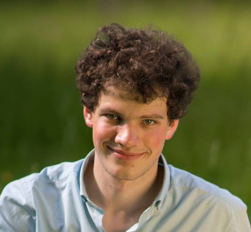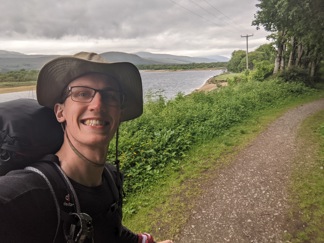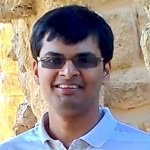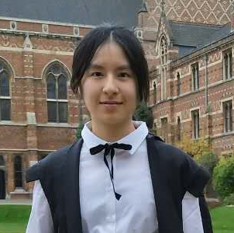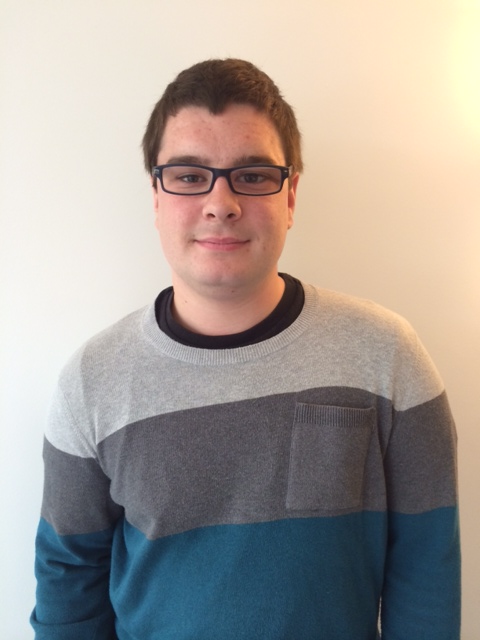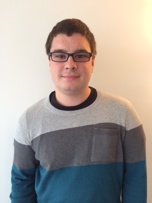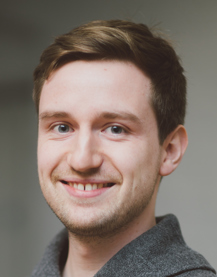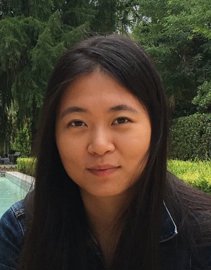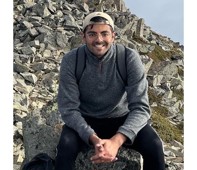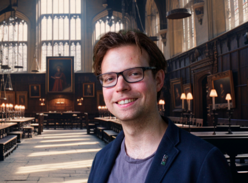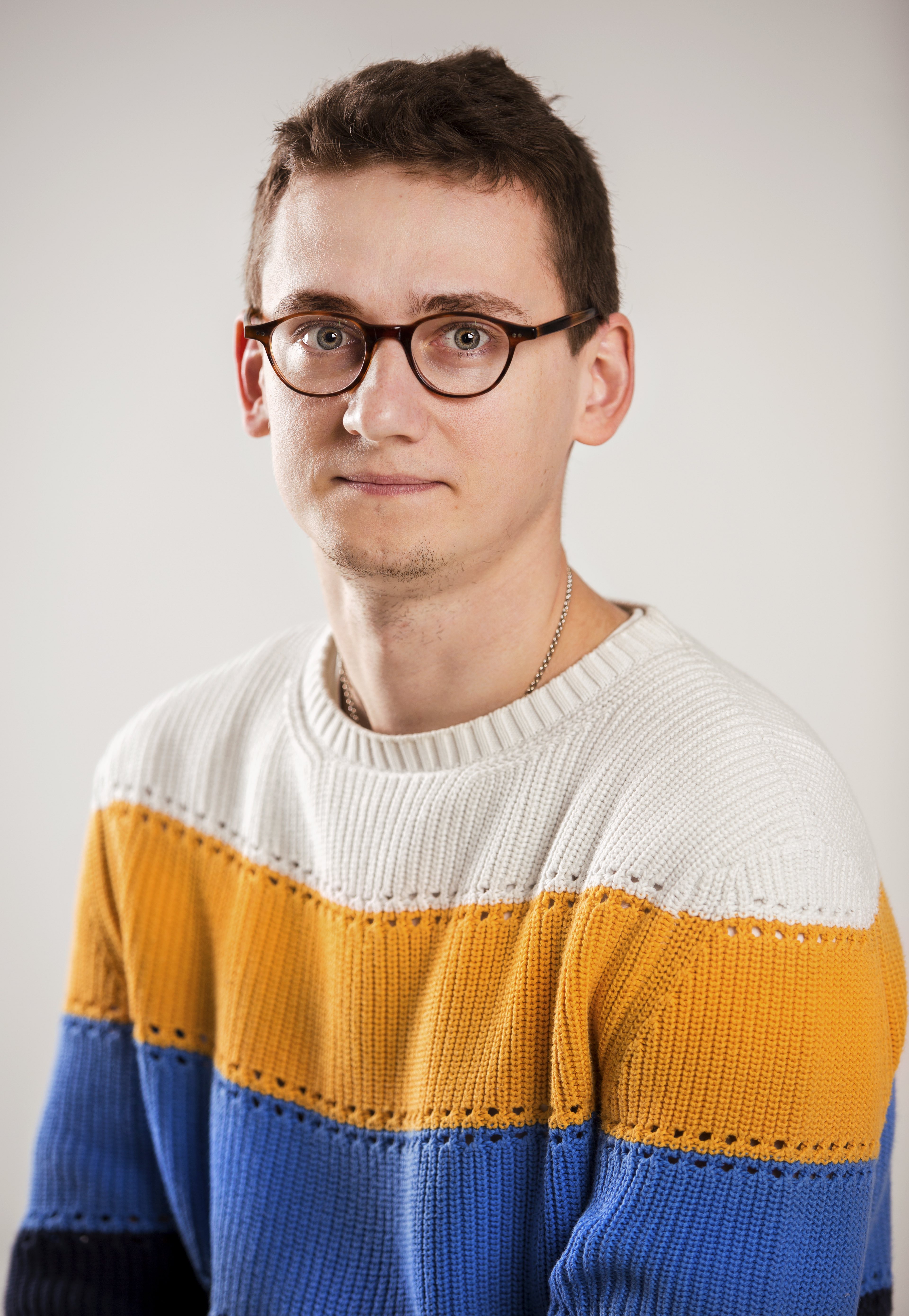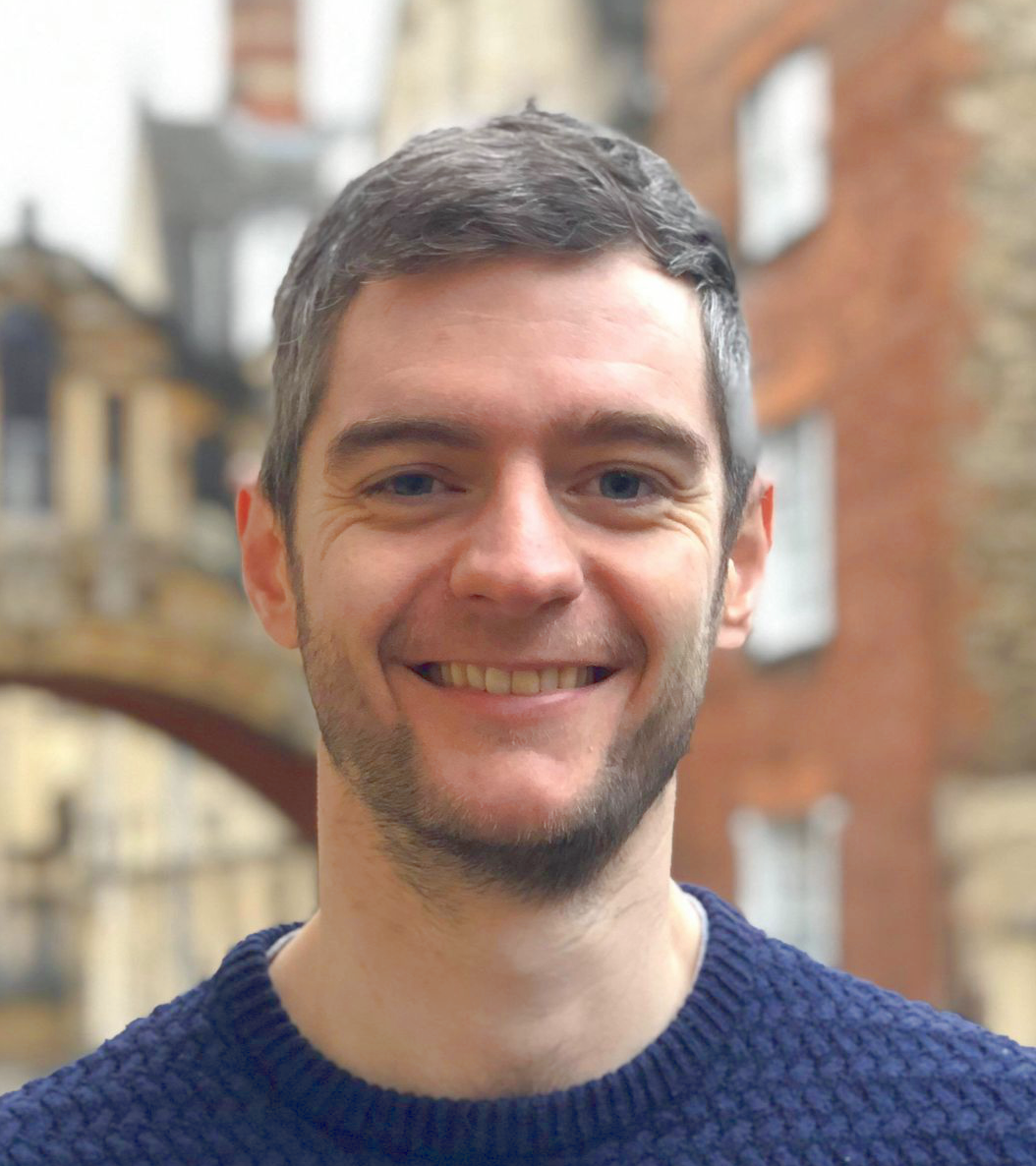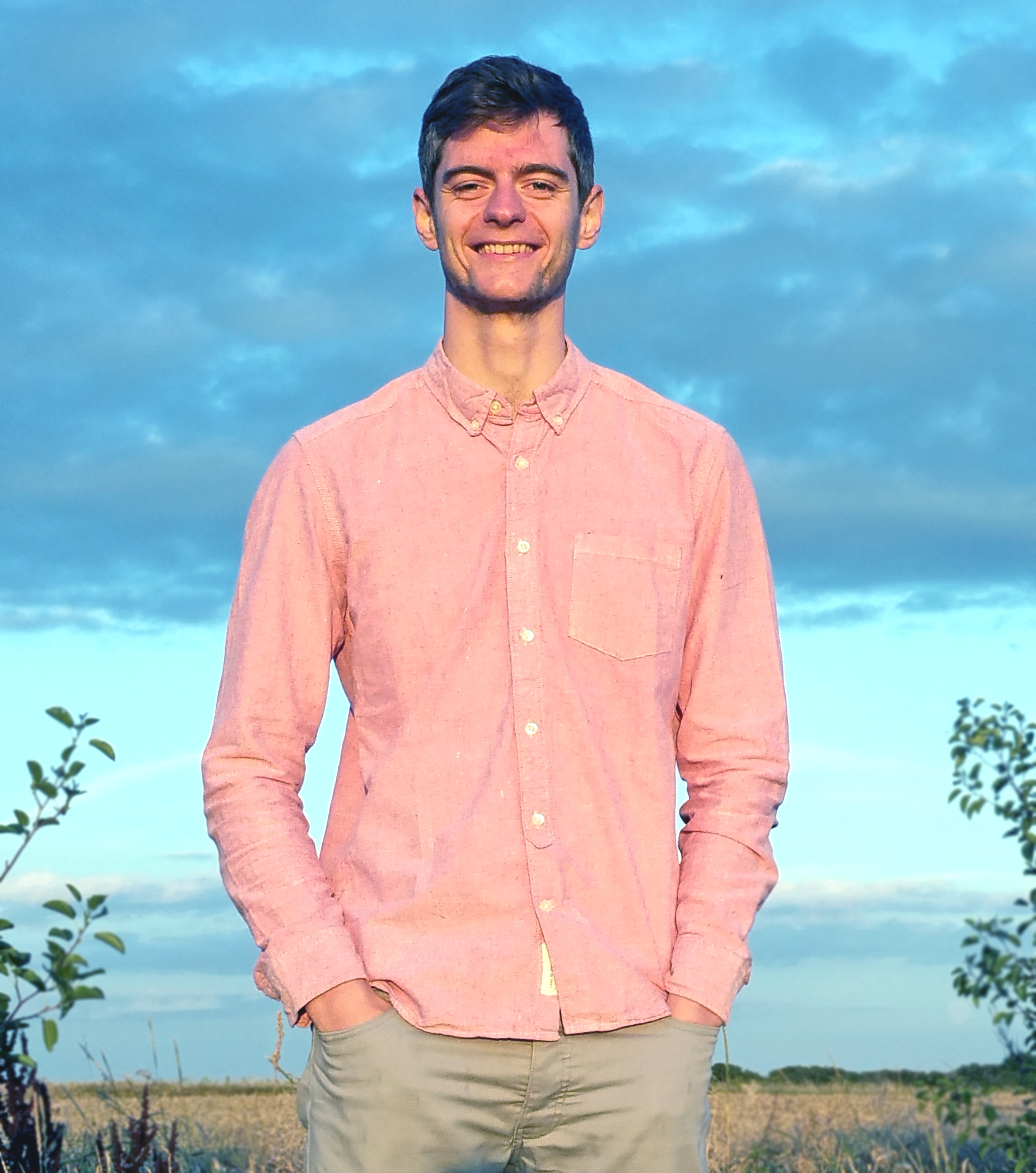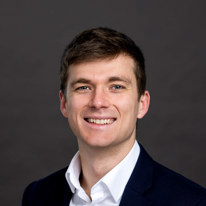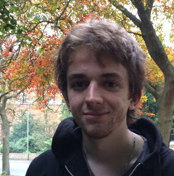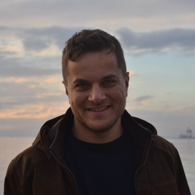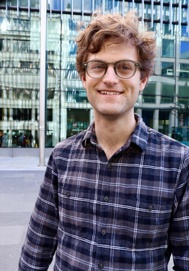Alumni of the EPSRC CDT in Autonomous Intelligent Machines and Systems, University of Oxford
Past Students at the AIMS CDT
Meet some of our alumni
Our graduates are equipped for leadership roles in industry both nationally and internationally; others continue on to postdoctoral research, often developing the work in their theses towards product.
Samuel Albanie
'Some Applications of Context to Convolutional Neural Networks'
"When I began the AIMS CDT (way back in 2014), I wasn’t sure what I wanted to work on. During the first year of the course, I became interested in convolutional neural networks and had a lot of fun working with them throughout my PhD (bravely supervised by Professor Andrea Vedaldi). I am now working as a Postdoctoral Researcher here in the Department of Engineering Science on the same stuff, because it’s still a lot of fun."

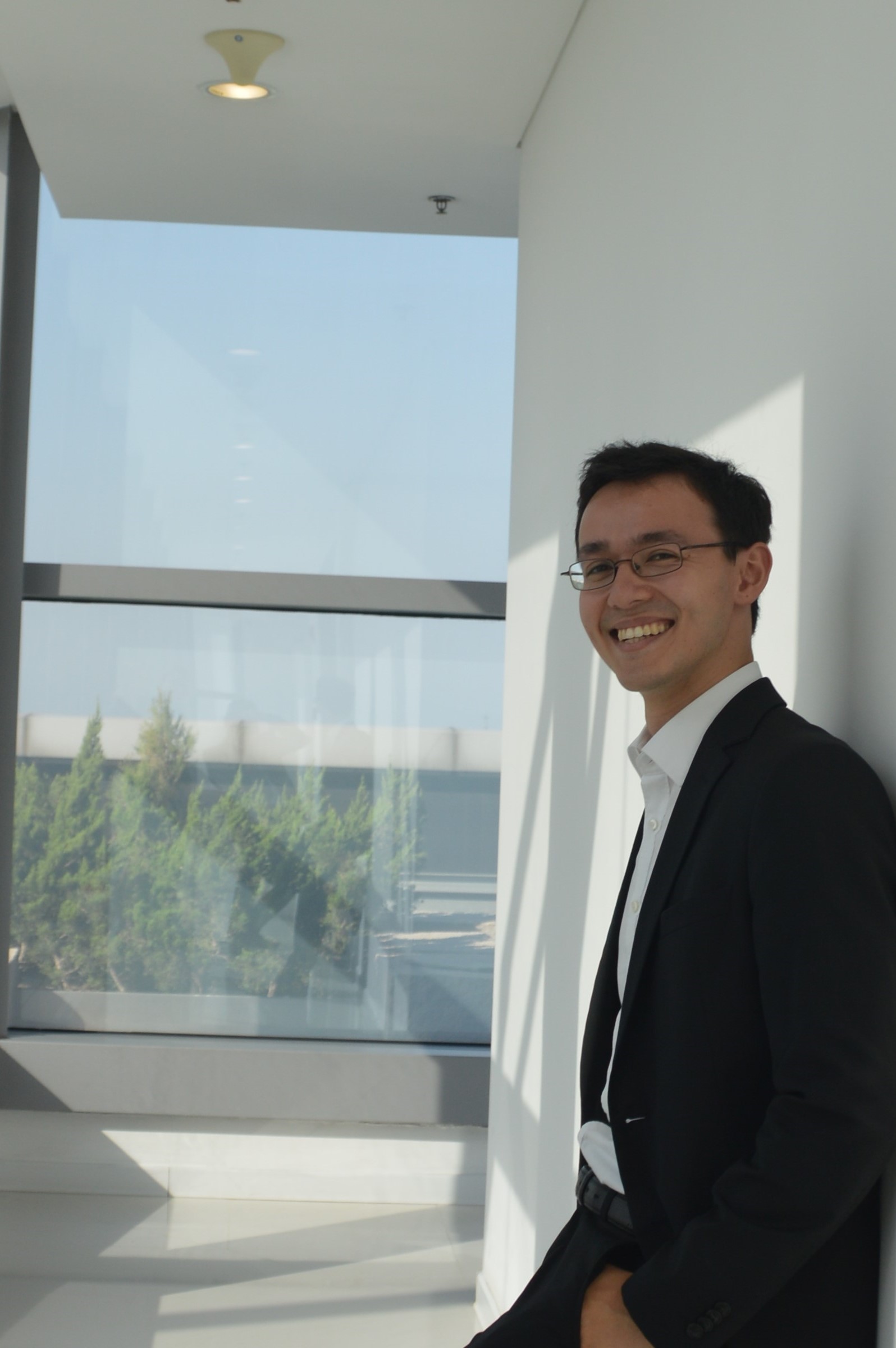
Yuki Asano
"Learning deep neural networks: Necessity and scope of prior knowledge, raw data and labels"
When I started the CDT, I only knew that I wanted to do something with machine learning. The mini-projects then allowed me to take a deeper look into how research is conducted in various subfields, which then ultimately lead to my D.Phil. research with Prof. Andrea Vedaldi. My focus was on self-supervised visual representation learning, i.e. learning neural networks and solving tasks all from just the raw data, without using human annotations. After this, I will start my role as assistant professor for computer vision and machine learning at the University of Amsterdam in October 2021.
Oliver Bartlett
MSc by Research: 'Teaching Robots where to Drive using Real World Data'
"I enjoyed my time as part of the AIMS CDT. The foundation year was useful as an introduction to the different areas where Artificial Intelligence is having an impact. Afterwards I joined Professor Ingmar Posner as part of the Oxford Robotics Institute (ORI), investigating off-road driving in novel environments. "Having finished, I am staying on as part of the ORI, organising trials and projects."
Leonard Berrada
"Leveraging Structure for Optimization in Deep Learning"
"The AIMS CDT was a great program to perform research in optimisation for deep learning. I have found the first year to be particularly useful to learn the foundations of the field and to nail down a specific area of interest. Thanks to mini-projects, I was able to start working early with my future advisors and to kickstart my own research. The CDT offered many opportunities to connect with industrial partners and to work on tangible challenging problems. In addition, by providing funding for conferences, the program enabled me to present my work to international conferences and workshops as well as to connect with the research community. Overall, the AIMS CDT is an extremely high-quality program that I would recommend to any candidate in artificial intelligence or machine learning, and I have just started a position with DeepMind."
Jonas Beuchert
"Probabilistic snapshot GNSS for low-cost wildlife tracking"
I was part of AIMS from 2019 to 2023 while working on open-source hardware and software for low-energy wildlife tracking. My work led to more than 100 GPS receivers being built and used around the world (see https://snappergps.info). This project was supervised by Prof. Alex Rogers. In addition, I had a smaller project on localising a robot in environments with little sky visibility, like forests, which was supervised by Prof. Maurice Fallon. After completing my degree in 2023, I joined the UK Centre of Ecology & Hydrology just south of Oxford where I still work on scalable wildlife monitoring technology. I will also join Cardiff University as a lecturer in Computer Science.
Rowan Border
"Next Best View Planning with a Unstructured Representation"
I joined the AIMS CDT in 2015 after completing an undergraduate degree in Computer Science and Artificial Intelligence at the University of Edinburgh. The first year of the programme provided a great opportunity to obtain a broad understanding of the different research areas in robotics and machine learning at Oxford. I enjoyed many of the first year courses and particularly the mobile robotics week taught by researchers at the Oxford Robotics Institute (ORI). I joined ORI for my DPhil where I worked on next-best-view planning for 3D reconstruction, initially supervised by Paul Newman in the Mobile Robotics Group (MRG) and then with Jonathan Gammell in the Estimation, Search and Planning (ESP) group. During the DPhil I enjoyed having the opportunity to pursue exciting research and present papers at conferences around the world thanks to the generous funding provided by the AIMS CDT. I am currently working on real world applications of my DPhil work as a post-doctoral researcher in the ESP group at ORI.
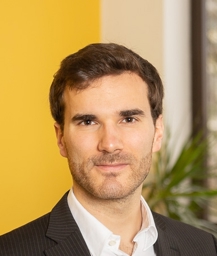
Jan Brauner
"From Public Health to AI Safety: Improving Machine Learning Approaches by Collecting, Selecting, or Reducing the Need for High-Quality Data"
AIMS was an amazing choice for my PhD (DPhil). Lot of freedom, the option to explore supervisors, and minimal bureaucratic non-sense.
I am currently working for the European AI Office.
Adam Cobb
'The Practicalities of Scaling Bayesian Neural Networks to Real-World Applications'
The AIMS CDT gave me the opportunity to explore multiple aspects of machine learning and provided me with the perfect foundation to pursue further research. After the first year of courses I moved to Professor Stephen Roberts’ lab, where I was also co-supervised by Professor Andrew Markham. My research then covered a wide range of topics from Gaussian processes to Bayesian neural networks, with an overarching theme of uncertainty quantification in machine learning models. I was also encouraged to go to conferences and meet many interesting people from both Oxford and the rest of the world.
Now that I have completed my DPhil, I look forward to starting as a Postdoctoral Fellow at ARL in Washington DC. I will continue conducting research within the area broadly defined as uncertainty quantification in machine learning, where I feel there is much to be done!
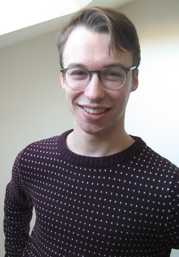
Rob Cornish
'Algorithms and Modelling for Large-Scale Bayesian Data Analysis'
I had a great experience as part of the AIMS CDT. The programme provides enormous freedom for students to choose the direction of their DPhil research: the CDT encompasses a wide range of different disciplines, and actively encourages exploring these through the courses and mini-projects undertaken in the first year. I found this structure very useful both for narrowing down exactly what I wanted to work on, and for simultaneously learning about a breadth of topics that I may not otherwise have considered. Having finished my degree, I'm now continuing my research as a postdoc in the Department of Statistics, where I'm working on machine learning and causal inference for healthcare. I'm also a co-founder of Quro Medical, a digital health company providing remote monitoring and hospital-at-home services in Southern Africa.
Alessandro de Palma
"Efficient Neural Network Verification and Training"
"I found the first year of the AIMS CDT to be particularly useful, as it provided me with a better perspective on machine learning research at large, and with great connections (and friends!) for what followed.
My PhD subject was at the intersection of optimisation and deep learning. In particular, I focussed on efficiently verifying properties of trained neural networks (for instance, adversarial robustness), and on training neural networks (for verifiability or multi-task learning) with minimal overhead.
I have since joined Imperial College as a postdoctoral researcher, where I am working on closely-related topics.

James Fox
"Causality and Strategic Reasoning"
My four years with the AIMS CDT were truly transformative. Coming from a physics background with limited AI knowledge, the programme's comprehensive and varied first-year course in everything from machine learning to robotics and game theory to verification laid a superb foundation for my research years. The CDT's support was exceptional throughout, enabling me to present at international conferences, make friends, find research collaborators, and forge crucial industry connections. Special thanks to Wendy, whose tireless dedication and support makes such a profound difference to all AIMS students. The programme has equipped me with the skills, confidence, and experience for my next chapter in AI safety, where I aim to help ensure that advanced AI systems are beneficial for all.

Fabian Fuchs
Learning Invariant Representations in Neural Networks
For me, doing the CDT was a great way of transitioning fields from physics to machine learning. The first year gave me an overview of the field and also the time to make a conscious decision about which lab to join for my PhD. The most important aspect of the CDT, however, was the community it provided. Especially the first 6 months of courses, which we did together as a cohort of just 10 people, was a forming experience. The people I met there continued to be some of my closest friends for the rest of the PhD and beyond.
Siddartha Ghoshal
'Algorithmic Decision Making in Financial Markets'
"The AIMS CDT is a superbly structured PhD program. Its students gain foundational training across a wide range of machine learning topics and, via its first year mini-projects, a smooth transition into the role of doctoral researcher. "It provided me with the skillset and opportunity to pursue practical, interdisciplinary research at the nexus between AI and finance, an area I continue to explore in my full-time role designing systematic trading strategies for Shell."
Bradley Gram-Hansen
"Extending Probabilistic Programming Systems and Applying them to Real-world Simulators"
Hi everyone! My time on AIMS has been fantastic - there have been ups and downs like any Ph.D, but mainly ups. I've made some of the best friendships I've ever had thanks to the program, worked with so many brilliant people, had supportive and dedicated supervisors who helped to guide me and allow me to explore my areas of interest, and last, but most definitely not least, had the pleasure of having the support of the AIMS "mother hen", Wendy - she's incredible and has always been there to help and guide. AIMS is so lucky to have Wendy!
My focus has been on probabilistic programming and Bayesian inference, which has led to a lot of interesting projects and collaborations. I have definitely found that I enjoy building applications of research, and as such have found an industrial AI research scientist position, where I will get to do research, but also help turn that research directly into production code.
Being in this field has opened up a lot of opportunities that others do not get, and I feel fortunate to have had these opportunities. I recommend the AIMS program for anyone not from an atypical computer science background.
Ankush Gupta
'Deep Learning with Synthetic, Temporal, and Adversarial Supervision'
"The AIMS CDT is an excellent PhD programme. It brings together students who work in different but related areas, which enriches their experience and broadens their knowledge. It provides a well-structured approach essential for the successful transition of students into graduate researchers. The courses and mini-research projects in the first year help in gaining an insight into the various sub-areas, and making an informed decision about doctoral research area/advisor. The generous financial support enables one to choose from some of the world’s best researchers at Oxford as their research advisor, without any prior commitment. Further, it provides for various expenses, like equipment and travel over the course of the programme. The various seminars, outreach activities, and training sessions support in rounded development. It is a unique programme which relieves the students of financial pressures and creates an ideal environment to enable valuable research. The CDT has gifted me the financial and intellectual freedom to pursue the research which I could not have done anywhere other than Oxford.
"Studying here also enabled me to further enhance my research skills as an intern at DeepMind London, which is also where I will work after completion. I am very grateful to the programme for supporting my doctoral study."
Chia-Man Hung
"From Visuomotor Control to Latent Space Planning for Robot Manipulation"
The AIMS CDT programme gave me the opportunity to explore a wide range of exciting research fields and the freedom to choose research groups and supervisors. I benefited not only from the expertise of senior academics and generous funding, but also from having a diverse and friendly cohort of peers. In the first year, I particularly enjoyed the mobile robotics week taught by the Oxford Robotics Institute (ORI) and decided to do a mini-project there. Afterwards, I joined the ORI for my DPhil where I worked on robot manipulation tasks from visual feedback, supervised by Ioannis Havoutis in the Dynamic Robot Systems (DRS) group and Ingmar Posner in the Applied AI Lab (A2I). Some of my highlights include participating in international robotics competitions -- World Robot Summit 2018 and RoboCup 2019 and presenting papers at conferences. The AIMS CDT is an excellent programme that I would recommend to any candidate interested in machine learning, particularly those who are not exactly sure which specific topic to work on and would like to first develop a broader view of the subject.
Jack Hunt
'Dynamic SLAM, Object Reconstruction, Shape and Pose Prediction for 3D Scene Understanding'
"I joined the AIMS CDT at Oxford in 2014, following my undergraduate degree in Computer Science. The broad remit of the training year allowed me to reinforce my decision to work in computer vision, whilst affording me an important appreciation for inter-disciplinary work. During my time at Oxford I have worked predominantly on 3D reconstruction and its various areas. "As a result, I now work in Mixed Reality technology, an exciting area that draws directly on my experience at Oxford."
Max Igl
"Inductive Biases and Generalisation for Deep Reinforcement Learning"
I've joined the AIMS CDT after previous studies in Physics and it helped me greatly to get started in the field of Machine Learning. The first year was particularly useful for exploring various research areas and getting to know potential supervisors. In the subsequent years, I profited greatly both from the generous funding for equipment and conferences, and from the interdisciplinary cohort of students. I have since joined Waymo UK as a research scientist.
Shu Ishida
"Spatial Reasoning and Planning for Deep Embodied Agents"
I joined the Visual Geometry Group for my DPhil research, supervised by Dr João F. Henriques. My research was on data-driven techniques for embodied agents, such as robots and self-driving cars, to learn spatial reasoning and planning, with the aim to enhance learning efficiency, interpretability, and transferability across novel scenarios. The AIMS CDT was helpful for me to decide on the direction of research, since I had a fairly broad scope in mind when I applied for the course. I am excited to put my skills into use, solving real-world problems.

Florian Jaeckle
"Toward Robust Machine Learning with Graph Theory"
I started the programme having very little idea what I wanted to work on during my PhD. The first two terms of taught courses and the two mini-projects gave me a great overview of the many different areas of AI that are being studied at Oxford. I eventually joined the Optimisation for Vision and Learning Group led by Pawan Kumar. During my DPhil I focused on robust machine learning. In particular, I studied how we can verify the robustness of trained neural networks to adversarial attacks.
After the competition of my DPhil I will start working as a postdoctoral fellow at the University of Cambridge focusing on using AI for medical imaging.
I would thoroughly recommend the AIMS programme to anyone who is unsure what exact topics they want to focus on during their DPhil and who would like to build a great network of fellow students and inspirational faculty members through the time of their PhD.
Xu Ji
"Unsupervised Learning and Continual Learning in Neural Networks"
Being part of the CDT at Oxford has been an amazing experience, and I am sorry to leave. It is a place that opens your eyes on both a professional and personal level. My research has been on machine learning and computer vision, and I intend to continue pursuing these, together with my interests in organic regenerative farming and sustainability.
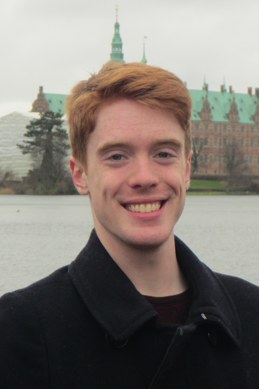
Kevin Judd
"Unifying Motion Segmentation, Estimation, and Tracking in Complex Dynamic Scenes"
I joined the AIMS CDT in 2015 after studying Electrical Engineering and Computer Science in undergrad. I knew I was interested in robotics, particularly vision and perception, but the CDT courses gave me a broad understanding of the many different aspects of autonomous systems that I had never really understood. I eventually found myself at the Mobile Robotics Group (MRG) under the supervision of Paul Newman and eventually the Estimation, Search, and Planning Group (ESP) under the supervision of Jonathan Gammell. I've greatly enjoyed my time at Oxford, and have seen the MRG grow into the Oxford Robotics Institute (ORI) with many new and exciting research directions under its umbrella. My work has focused on multimotion estimation using vision, attempting to tackle the challenges involved in safely navigating through highly dynamic environments with autonomous robotic platforms. I'm looking forward to continuing my research through a postdoc position at ORI, and am excited to explore and develop new visual systems for motion estimation.
Prannay Kaul
"Developing Object Perception in the Low Data Regime"
Being part of the AIMS CDT has been a great experience. The course allowed me to get a taste in various areas of autonomous systems, which helped me find an interest in computer vision. The funding provided by the CDT allowed me to attend conferences in Hawaii and New Orleans—this was priceless to enable me to connect with the wider research community. I would recommend the CDT to anyone who is interested in developing autonomous systems and is not certain what area to undertake a DPhil.

Henry Kenlay
"Robustness Ama;ysis of Graph-based Machine Learning"
In the first year, the CDT provided me with an excellent opportunity to study a broad range of machine learning and related topics and get to know the faculty and their interests. Furthermore, the mini-projects allowed me to trial two potential DPhil directions. The CDT offers a valuable network of students and faculty researching various topics. The CDT put on many engaging academic and fun social events throughout my time in Oxford. I highly recommend the CDT to future students! My research focused on graph machine learning, and I was fortunate to be supervised by Professor Xiaowen Dong and Professor Stephen Roberts. Following the hand-in of my thesis, I have started working at Exscientia, an Oxford-based AI-focused pharmaceutical company. Here, I research antibody design using machine learning techniques.
Andreas Kirsch
"Advancing Deep Active Learning & Data Subset Selection: Unifying Principles with Information-Theory Intuitions"
Joining AIMS CDT was a highlight of my academic journey. The robust structure of the program with the first year as a theoretical deep dive set a solid foundation for my research in using information-theoretic principles for data-efficient Bayesian deep learning. At the same time, the nurturing environment significantly shaped my DPhil experience: The AIMS community, events, and support were incredibly important and helpful for my academic success and my personal well-being. The friendships and connections made my Oxford experience much better, and I'm incredibly grateful for my experience. Without AIMS and the support from the programme, I would not have been able to pursue my doctorate (so) successfully.
Vitaly Kurin
"A Minimalist Approach to Deep Multi-task Learning"
AIMS CDT has been a huge learning experience for me. As for many people, my DPhil was not a walk in the park, and the friends I found during the first year of CDT helped me immensely along the way. Wendy Poole, the program administrator, has been absolutely fantastic and did everything possible for me to focus solely on my research. CDT social events were not only fun but greatly helped keeping in touch with a diverse range of people across the departments. The CDT funding through Samsung studentship came with no strings attached, and Shimon, my supervisor, gave me total freedom in pursuing my scientific interests, i.e., deep multitask reinforcement learning with graph-based representations. I will continue my research as a research scientist at a new drug discovery startup Isomorphic Labs (https://www.isomorphiclabs.com/). I highly recommend CDT for doing your DPhil, and if you need any advice, I will be happy to chat (https://twitter.com/y0b1byte).
Cong Lu
"Towards Efficient and Robust Reinforcement Learning via Synthetic Environments and Offline Data"
I loved my four years with the AIMS CDT, and the opportunities to meet professors, explore topics broadly and interact with my cohort were invaluable to me. You will always feel supported by Wendy, the fantastic course administrator as well! I spent most of my time working on deep reinforcement learning under the supervision of Professors Mike Osborne and Yee Whye Teh, and will continue my research as a postdoc at the University of British Columbia.
Amanda Matthes
"Snapshot GNSS for Wildlife Tracking"
I joined the AIMS programme in 2019 after an undergraduate degree in physics. For my thesis, I explored the use of snapshot GNSS for recording the movements of wild animals. I am now an engineer at Amodo, where I currently work on preparing for pandemics and reducing the suffering of farmed animals.
Ben Moseley
"Physics-informed Machine Learning: from Concepts to Real-world Applications"
I can’t recommend the AIMS CDT enough. By completing the AIMS program, I was able to career change from geophysics into machine learning and carry out research at the intersection of science and machine learning. The format of the program, where we completed taught courses and small mini-projects in the first year, was great as it gave me a solid foundation of the latest machine learning techniques and allowed me to meet Oxford professors before I committed on my DPhil topic and supervisor. Being at Oxford offered me a wide range of opportunities to promote my work, carry out internships and collaborate with other researchers. And it was fascinating to learn alongside such a diverse cohort of AIMS researchers.
I was supervised by Professor Andrew Markham and my focus was on different ways physical principles can be encoded into machine learning. Having completed my DPhil, I am now starting as a postdoctoral fellow at the ETH Zurich AI Center, continuing my research in the field of scientific machine learning.
Matthew Newton
'Analysis of Robust Neural Networks for Control'
I thoroughly enjoyed my time on the AIMS CDT program. I found it hugely beneficial to gain exposure to the multiple disciplines that were offered on the program and also to the numerous talks and workshops which improved my knowledge and skills. In addition, working on the mini-projects initially allowed me to effectively transition to my primary PhD research. I undertook my PhD project within the Control Group under the supervision of Professor Antonis Papachristodoulou and focused on designing algorithms to analyse the robustness properties of neural networks for use in Control applications. These algorithms improved in both efficiency and accuracy compared to existing approaches. I was also able to extend these approaches to analyse dynamicial systems that contain neural networks, allowing for more reliable robustness guarantees. I am very grateful to have been a part of the AIMS CDT and to have had the opportunity to meet so many interesting like-minded people. I would strongly recommend the course to anyone interested in the intersection between Computer Science and Engineering.
Pierre Osselin
"Robustness & Statistical Decision Making in Non-Euclidean Spaces"
"The CDT was a great starting point for my DPhil. In the first year, I explored a wide range of topics in machine learning and related areas, which helped me discover my research interests. The mini-projects let me try out different possible topics of my choice before deciding on the subject of my thesis. The CDT also promotes a strong sense of community through academic events and social activities. I would highly recommend it to future students who wants to gain expertise in machine learning in a world-class institution.
My research was at the intersection of graph machine learning and Bayesian Optimization, and I was fortunate to be supervised by Professor Xiaowen Dong and Professor Michael Osborne. After finishing my DPhil, I joined Amazon, where I work on optimizing the company's middle mile transportation network."
Alasdair Paren
"Optimisation for Efficient Deep Learning"
After the taught section of the CDT I joined the Optimization for Vision and Learning Group headed by Pawan Kumar. My DPhil research focused on the optimization problems that underpin the training of deep neural networks in different settings. I developed several easy to use and efficient optimization techniques design to reduce the cost of training. I also spent much of my time investigating the training of efficient models such as Binary Neural Networks.
I am looking forward to continuing my research into deep learning at Oxford, as a postdoc within the Torr Vision Group. Where I will be exploring the topics of continual learning, robustness and improving the uncertainty estimates of deep neural networks.
Andrea Patane
'On the Adversarial Robustness of Gausian Processes'
I am really happy with my 4 years experience in the AIMS CDT program. My DPhil research then focused on computing adversarial robustness Guarantees for Bayesian machine learning model, with particular attention to Gaussian Processes and Bayesian Neural Networks - a field at the crossroad between verification, non-linear global optimisation, deep learning and probabilistic theory. All of this would have been difficult for me to do without the first, foundational year of the AIMS CDT which provided me with the expertise needed on a range of topics. Being part of a network of researchers from different backgrounds was also very useful for receiving continuous feedback and developing my research. I am currently working as a research assistant in the Department of Computer Science in Oxford, and continuing to look at how Bayesian models can provide provable guarantees at training time, as well as applications in fairness and cognitive modelings.
Nikitas Rontsis
'Numerical Optimization with Applications to Machine Learning'
I enjoyed the AIMS CDT programme and in particular the academic freedom, networking possibilities and generous funding that it entailed. My cohort was very friendly, and the concept of mini-projects was also particularly useful for finding a supervisor that was really suitable for me. I have now joined Optimal Labs in London and I am excited to bring into practice the knowledge I acquired throughout my PhD.
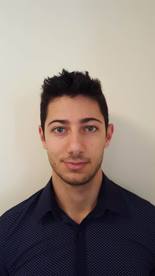
Sasha Slater
"Discovering knowledge abstractions for sample efficient embodied transfer learning"
The first year of the AIMS CDT covered a broad and comprehensive overview of machine learning, robotics and sensor systems and verification. This first year was crucial towards shaping the remainder of the PhD: providing a flavour of what was to come; helping one pick their preferred field of study. Throughout, experiences were shared with the diverse cohort of high achieving peers, providing a sense of community that supported and sometimes collaborated with each other. Wendy Poole, the CDT Programme Manager, facilitated the smooth running of the CDT, going above and beyond to ensure each student was fully supported. The CDT provided numerous collaborations, between distinguished academic groups and industry, eventually leading to an internship with DeepMind. The culmination of the CDT led to a Research Scientist position at Meta’s Reality Labs, continuing the research of Reinforcement Learning and Knowledge Abstraction approaches in industry. This CDT has been invaluable towards the career development of a Machine Learning Research Scientist, exposing one to an indispensable network of industry and academic experts.
James Thewlis
'Objects from Motion'
"The AIMS CDT has given me the opportunity to learn a broad range of topics in the first year and then develop my ideas into a solid research project. "My thesis, supervised by Professor Andrea Vedaldi in the Visual Geometry Group, deals with the problem of finding useful representations of objects, such as faces and cats, learning automatically from motion rather than using expensive manual annotations. I am very grateful for the support the AIMS CDT has given me throughout my studies, including funding that has allowed me to present my work at international conferences. "My future plans include a project working with Facebook AI Research (FAIR), and I am also thinking about some startup ideas." Update: "I’ve been building a startup through Entrepreneur First and it’s now been accepted for the “Launch” phase which means we get an initial £80k investment! We’re working on contextual video understanding to detect harmful content on online platforms, and my co-founder Sasha Haco is a mathematician from Cambridge."
Stefan Webb
"Neural Networks for Inference, Inference for Neural Networks"
"The AIMS CDT program has provided me with excellent opportunities with world-class professors and post-docs to learn how to do research in machine learning and publish at top venues. I have also had the chance to experience research in industry as an intern, and develop contacts for employment after graduation. "My thesis, ‘Neural Networks for Inference, Inference for Neural Networks,’ was at the intersection of deep learning and Bayesian statistics, and was about the ways NNs can be used for amortized variational inference, and conversely how inference can be used to analyze discriminative NNs. After graduating, I am looking to continue working in this area in industry, developing applications and tools for deep Bayesian modeling.”
Update: I have just acepted a ML research postition with Twitter Cortex, San Francisco.
"Learning from Time"
I joined AIMS in 2020, already knowing I want to do computer vision. The first year coursework covers things from robotics and reinforcement learning to high-performance computing. I then went (back) to do computer vision for the next three years with Andrew Zisserman and Weidi Xie and the Visual Geometry Group (VGG).
Looking back, I am very surprised how useful these “adjacent” topics in AIMS turned out to be as the research landscape progresses! After graduation, I’ll be joining Isomorphic Labs (a spinoff from Google DeepMind) as a Research Scientist working on AI for drug discovery.



